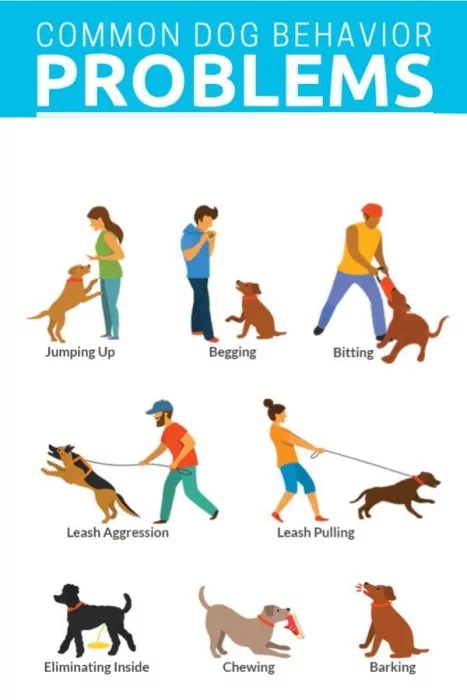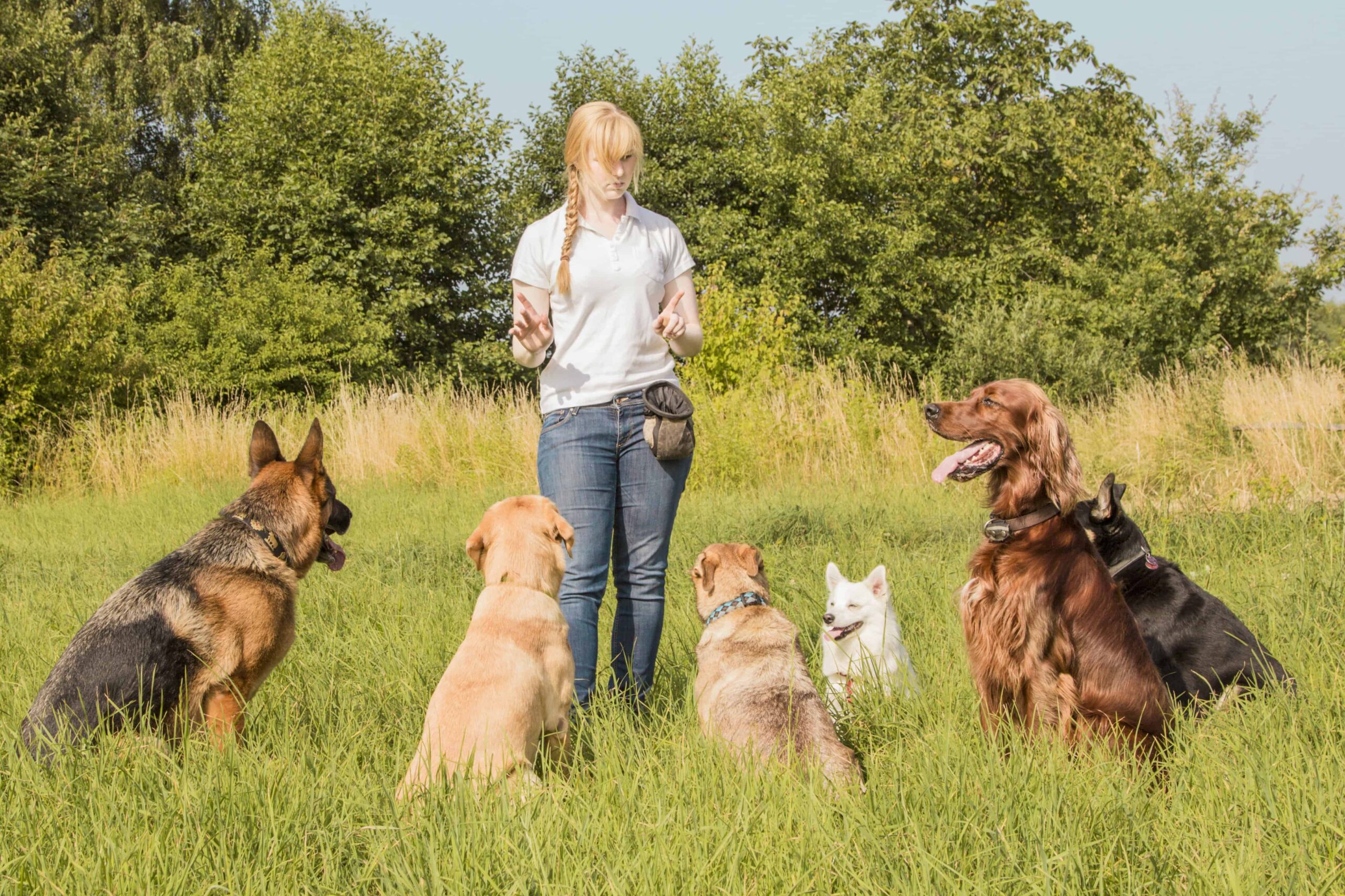The Advantages of Selecting Dog Training Near Me for Tailored Solutions
The Advantages of Selecting Dog Training Near Me for Tailored Solutions
Blog Article
Unlock Your Dog's Potential: Proven Canine Training Techniques for Success
Effective pet training is a nuanced procedure that hinges on recognizing canine habits and employing medically backed techniques. By incorporating favorable reinforcement, developing clear commands, and prioritizing socializing, pet dog owners can grow a productive partnership with their animals.
Recognizing Pet Dog Behavior
Comprehending dog habits is important for reliable training and fostering a favorable relationship in between dogs and their proprietors. A detailed understanding of canine body language, articulations, and social interactions is vital for recognizing their emotions and demands. Dogs interact primarily with non-verbal signs; as an example, a wagging tail may show excitement, while pinned ears can indicate anxiety or submission.

Furthermore, environmental elements play a significant role fit a dog's actions. Adjustments in regular, new surroundings, or the presence of strange people can cause anxiety or stress and anxiety in canines. Recognizing these triggers makes it possible for proprietors to alleviate unfavorable reactions and create ideal training methods.
Eventually, a deep understanding of dog actions lays the structure for successful training approaches, boosting both habits and the overall bond in between the canine and its owner. dog training charlotte. This understanding is important for fostering a well-adjusted, satisfied canine friend
Positive Support Methods
Effective training counts greatly on positive support methods, which have actually been revealed to yield substantial lead to forming desired actions in canines. This approach includes rewarding a pet dog for exhibiting details behaviors, therefore enhancing the chance that these habits will certainly be repeated. Benefits can take various types, consisting of treats, appreciation, playthings, or playtime, relying on what inspires the specific canine.

It is vital to slowly phase out incentives as the pet dog learns the actions, transitioning to recurring reinforcement. This strategy keeps the habits in time while preventing dependence on continuous incentives. By concentrating on positive support, fitness instructors can grow a relying on relationship with their pets, promoting a healthy and balanced and cooperative training environment that improves overall obedience and efficiency.
Establishing Constant Commands
A fundamental facet of successful pet training is the establishment of regular commands. Consistency in commands is vital for effective interaction between the pet dog and the trainer. When commands are uniform, pets learn to connect specific words with preferred actions, which accelerates the training procedure and boosts understanding.
To establish regular commands, it is essential that all relative use the exact same terms and gestures. If one individual utilizes "rest" while an additional says "sit down," it can produce complication for the dog. Select clear, unique words for commands and make certain everyone involved in the pet dog's training sticks to these selections.
Additionally, repeating is crucial. Enhance commands via frequent practice, making sure that the pet dog obtains ample opportunities to respond properly. When a canine effectively adheres to a command, prompt favorable support needs to adhere to. This could be in the form of treats, praise, or playtime, solidifying the link in between the command and the action.
Lastly, hold your horses. Developing regular commands takes some time and initiative. With devotion and clearness, you will help your dog create a solid understanding of expectations, ultimately leading to a mannerly buddy.
Socialization and Exposure
Mingling a pet is necessary for promoting a well-adjusted and confident friend. This process entails revealing your canine to a variety of atmospheres, people, and various other animals to develop their social abilities and adaptability. Early socializing, ideally in between the ages of 3 to fourteen weeks, is essential, as it lays the foundation for a pet dog's future behavior.
Throughout socialization, purpose to offer favorable experiences in different setups, such as parks, hectic roads, and homes with other pets. Present your dog to different stimuli, consisting of sounds, sights, and scents, guaranteeing that each experience is gratifying. This direct exposure assists minimize worry and anxiousness, leading the way for a more durable dog.
Engaging in regulated group play click to read sessions with other pets can also boost social abilities, instructing your pet dog appropriate communications and borders. Always monitor your pet's comfort level throughout these experiences, progressively increasing exposure as their self-confidence expands. Remember, the goal is to develop a well-rounded animal that prospers in varied situations, promoting an unified partnership with both human beings and other animals. Prioritizing socializing will dramatically add to your dog's general happiness and habits throughout their life.
Conquering Common Educating Obstacles

Canines might battle to focus in hectic or unknown settings. Slowly desensitize your pet to distractions by starting training in a peaceful setting and gradually introducing more stimuli as they end up being skillful.
Additionally, behavioral issues like jumping or extreme barking can come to be irritating. Address these by teaching alternative behaviors, such as sitting comfortably when welcoming visitors. Uniformity and perseverance are critical; reinforce desired behaviors consistently and avoid scolding, which can result in confusion.
Lastly, recognize that each dog is distinct, and training timelines may vary. Tailor your approach to your dog's individual needs, and look for specialist advice if essential. With willpower and the ideal methods, getting rid of these difficulties can result in a well-trained, happy canine companion.
Verdict
To conclude, opening a canine's potential necessitates a comprehensive strategy that integrates an understanding of canine habits, the application of positive support methods, and the establishment of consistent commands. Early socializing and exposure to diverse settings additionally improve a dog's flexibility and self-confidence. By dealing with usual training difficulties with tailored approaches and persistence, a cooperative and unified connection in between pet dog and handler can be cultivated, eventually causing a well-behaved companion with the ability of flourishing in numerous circumstances.
Reliable pet dog training is a nuanced process that hinges on understanding canine habits and employing clinically backed strategies.Comprehending dog habits is important for reliable training and fostering a favorable relationship between pets and their owners.Reliable training relies heavily on favorable reinforcement methods, which have actually been shown to produce substantial results in forming wanted habits in pet dogs. When commands are uniform, canines find out to associate hamster toilet litter particular words with wanted habits, which increases the training process and improves understanding.
In verdict, unlocking a canine's possible necessitates an extensive technique that includes an understanding of canine behavior, the application of positive support strategies, and the facility of consistent commands.
Report this page